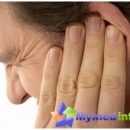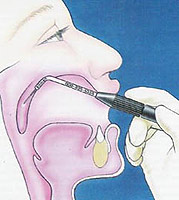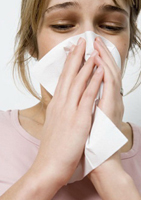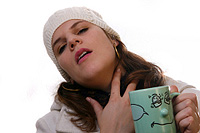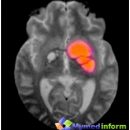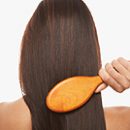Doesn't the ringing, hissing, hum, clicked or other noise in the ears? This noise pursues you constantly or appears at equal time intervals? Perhaps this is a disorder that requires treatment. In particularly serious cases, the noise in the ears can lead to hearing loss, sleep disorders and labor loss.
Content
Every fifth resident of the planet suffers from noise in the ears, and almost 33% of the elderly people. Noise in the ears is not a disease, but disorder. Learn more about the symptoms of noise in the ears and possible ways to treat. Let's start with a pulsating noise in the ears.
The most common are the following forms of noise in the ears:
- The most common type of noise in the ears - ringing, hissing, hum, buzzing, shrill squeak or whistle that can only hear the patient.
- Also distributed T.N. «subjective» noise in the ears when the patient seems like he hears the noise in the ears.
- Pulsing or clicking noise in the ears - disorderly, but continuous noise coinciding with heartbeat rhythm.
- Occasionally meets objective noise in the ears, when noise can hear the noise and surrounding.
Causes of noise in the ears
- Damage to the eardrum or disease of the inner ear. Impeccable hearing is possible only if the hearing nerves are healthy, and any of their damage can lead to noise in ears or hearing disorders.
- Young people have noise in the ears as a result of a constant impact of loud sound.
- The destruction of the auditory nerve usually accompanies the process of aging the body, so noise in the ears often occurs in the elderly.
- Sometimes a sulfur traffic jam in the ear leads to temporary noise in the ears.
- Outklerosis (sclerosis of the ear), hardening bones in the middle ear can also cause noise in the ears.
- Middle Ear Tumor - Another common cause of noise in the ears.
- Allergies, low or high pressure, head or neck injuries, diabetes, thyroid disease can also cause noise in the ears.
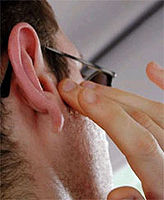
Symptoms of noise in the ears
- Noise that no one except you hears.
- Most often a ringing or obsessive buzzing is heard.
- Often noise is accompanied by attacks of weakness or temporary hearing loss.
- Pain in ears.
- Headache.
- Feeling fullness of the ear.
Treatment of noise in the ears
People suffering from noise in the ears, you should contact a otolaryngologist - it will help you choose the appropriate type of treatment. If the otolaryngologist can determine the cause of the violation, the noise in the ears can be heal. The exact reason for this violation can be determined using a number of surveys, including x-ray examination, equilibrium tests, laboratory studies, etc.
For the treatment of noise in the ears, doctors recommend to perform the following recommendations:
- Avoid noise.
- Measure the blood pressure regularly and try to control it.
- One of the main causes of blood circulation violations is salt abuse, so try to move to unsalted food.
- Learn to relax.
- Refrain from tobacco use, tea, colas, coffee and other stimulants.
- Stop constantly thinking and worry about noise.
- Sports daily to improve blood circulation.
Current from noise in the ears
- Exercises for concentration and relaxation help restore control over muscle and blood circulation. These exercises help reduce the noise in the ears, which greatly facilitates the discomfort of patients.
- Hearing devices also facilitate the discomfort of people suffering from noise in the ears, and also improve the hearing. But before installing the device, make sure that the volume level does not exceed the norm, otherwise it can only worsen the patient's condition.
- Masking also helps reduce the noise in the ears, because in a quiet and relaxed atmosphere, noise seems loud, in conditions of continuous soft noise it is less noticeable. Today, in the pharmacy, you can purchase devices, emitting a quiet continuous noise that makes discomfort of patients somewhat.
- If necessary, auditory devices can be used in conjunction with masking devices, which enhances the positive effect.

